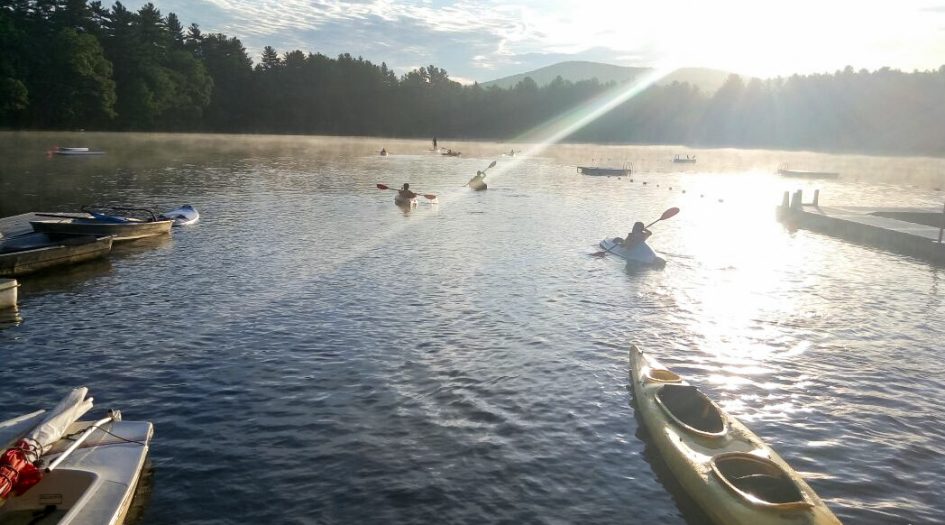D’var Torah: Parshat Devarim – The Meaning of Life

It is fitting that we start the fifth and final book of the Torah, Devarim, prior to the last week of camp. The fourth book ends with us on the edge of the Promised Land, ready to fulfill our destiny. The excitement of finding out what will happen to this scrappy band of former slaves reminds me of how I felt when the seventh Harry Potter book came out, or how people felt about the last season of Game of Thrones. We will finally find out what happens! Instead, we get a monologue from Moshe, retelling the story and reteaching the lessons of our wanderings in the desert. Bummer.
However, the fact that the Torah ends with us never entering the land and instead only talks about the story of our journey, says enormous things about life’s meaning: the focus should be on the journey, not the destination.
So it is at Ramah each summer. It is all about the individual, the bunk, the edah and the camp. We aren’t really going anywhere, we are just going together.
We are told at the outset that everyone is created in God’s image. The ramifications of this assertion cannot be minimized. If we are created in God’s image that means that each of us matters and each of us is equal. It is totally fine to care about ourselves and to strive for the things we want. The only catch is that everyone else is created in God’s image too. That means we have to remember that they matter and they have the right to be treated like God too. As Hillel says, “If I am not for myself, who will be for me? But if I am only for myself, what am I?”
The tzrif (bunk) is our family. You can sort of make requests of who you want to be in this family but ultimately it is a little bit of randomness that determines who you will be connected to throughout your camping years. I don’t know why, but almost everyone feels obligated to care unconditionally about the people in their families. It is probably coded in us for our survival. Just like families, there are often interesting characters in our tzrifim, some people who drive us nuts and some that we enjoy every moment with. You can complain and fight within your family/tzrif, but God help the person on the outside who hurts or makes fun of one of your siblings/tzrif members. It is with our family/tzrif that we experience life’s greatest triumphs, tragedies and formative experiences. We connect to the people in our tzrif over the years in very deep and personal ways.
The edah is our local community. It is kind of like our bigger family friend group, our school or synagogue. We know most of the people in this group, at least peripherally, and we rely on them to have relationships and experiences that just can’t happen in our tzrif. By praying and doing all sorts of activities with our edah, we are fostering connections that help us in our times of need and open up the possibilities of incredible moments that can only be had in bigger groups. A medura (camp fire) is a communal gathering that is both intimate and fun, that allows people to feel part of something special and allows individuals opportunities to shine. As we get older, the edah becomes more important and we build connections to a wider web of people, many who we remain connected to for our whole lives. If you ask a Ramahnik, they will tell you that they are “Niv _____ (the year).” People identify with their edah.
The camp is our little world. It is big enough that we don’t really know everyone but small enough that we kind of know who belongs to it. There are moments at camp that need this size to be effective. For Nivonim to have leadership moments, they need the whole camp for Yom Sport (Color War) and Shira (Singing). For all of us to feel part of something special, we need Shabbat in the Horsha (grove) all together. The feeling of being a part of something bigger than ourselves gives us feelings of security and importance. Some of our biggest moments of joy are made greater and moments of sadness (like closing day) are made more bearable, because we are all in it together.
At camp we have great activities and incredible moments, but just like the Torah, we don’t actually end up anywhere tangible. In fact, sadly, we have to leave. The only solace that can be taken is the fact that just as we start over and read the Torah again in its entirety next year, we will be right back here in Palmer again next June, starting on another exciting and meaningful journey.